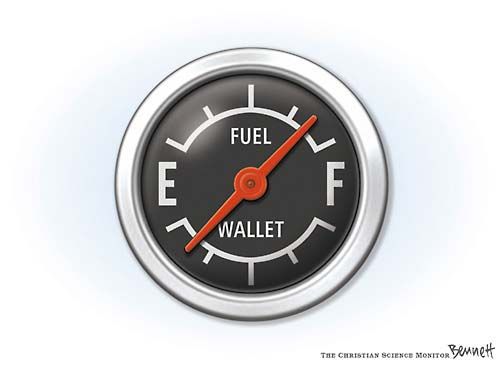from email
Live your life in such a way...... ....that when your feet hit the floor in the morning, Satan shudders and says...... "Oh, S**t!.... she's awake!!"
Saturday, May 20, 2006
Friday, May 19, 2006
Just this side of heaven is a place called Rainbow Bridge.
When an animal dies that has been especially close to someone here, that pet goes to Rainbow Bridge. There are meadows and hills for all of our special friends so they can run and play together. There is plenty of food, water and sunshine, and our friends are warm and comfortable.
All the animals who had been ill and old are restored to health and vigor. Those who were hurt or maimed are made whole and strong again, just as we remember them in our dreams of days and times gone by. The animals are happy and content, except for one small thing; they each miss someone very special to them, who had to be left behind.
They all run and play together, but the day comes when one suddenly stops and looks into the distance. His bright eyes are intent. His eager body quivers. Suddenly he begins to run from the group, flying over the green grass, his legs carrying him faster and faster.
You have been spotted, and when you and your special friend finally meet, you cling together in joyous reunion, never to be parted again. The happy kisses rain upon your face; your hands again caress the beloved head, and you look once more into the trusting eyes of your pet, so long gone from your life but never absent from your heart.
Then you cross Rainbow Bridge together....
Author unknown...
Wednesday, May 17, 2006
Tuesday, May 16, 2006
Monday, May 15, 2006
April 14, 2006
As the April 15 tax deadline edges closer, taxpayers frantically completing their 1040s may be wondering just what their hard-earned federal tax dollars pay for, anyway.
Washington will spend $23,760 per household in 2006 -- the highest inflation-adjusted total since World War II, and $6,500 more than in 2001. The federal government will collect $20,044 per household in taxes. The remaining $3,716 represents this year’s budget deficit per household, which, along with all prior government debt, will be dumped in the laps of our children.
Here’s a breakdown of how Washington will spend that $23,760 per household:
Social Security/Medicare: $7,875. The 15.3 percent payroll tax, split evenly between the employer and employee, covers most of these costs. This system can remain sustainable only if there are enough workers to support all retirees, which is why it risks collapsing under the weight of 77 million retiring baby boomers. If nothing is done, taxes eventually will need to be raised by the current equivalent of $11,000 per household to pay all promised benefits. The unpredictable costs of the new Medicare drug entitlement could add thousands more to each household’s tax bill.
Defense: $4,701. The defense budget covers everything from military salaries to operations in Iraq and Afghanistan to the research, development and acquisition of new technologies. Lawmakers drastically reduced defense spending following the collapse of communism in the early 1990s. The 9/11 attacks reversed this trend, and the $1,900 per household increase since 2001 has returned defense spending to its historical levels.
Low-income programs: $3,579. Nearly half of this spending subsidizes state Medicaid programs that provide health services to poor families. Other low-income spending includes: Temporary Assistance for Needy Families (TANF), food stamps, housing subsidies, child-care subsidies, Supplemental Security Income (SSI) and low-income tax credits. Despite recent rhetoric about “cuts for poor,” anti-poverty spending now tops 3 percent of GDP for the first time ever.
Interest on the federal debt: $1,930. The federal government is $8.2 trillion in debt. It owes $4.9 trillion to public bond owners, and the rest to other federal agencies (mostly to repay the Social Security trust fund, which lawmakers raid annually). Despite rising debt, record-low interest rates have limited costs. As interest rates rise back to normal levels, these costs will spike.
Federal employee retirement benefits: $870. This spending funds the retirement and disability benefits of federal employees, including the military.
Education: $732. Education spending is primarily a state and local function; 9 percent of the total comes from Washington. Federal education spending has surged 137 percent since the 2001 enactment of the No Child Left Behind Act. Most federal dollars are spent on low-income school districts, special education and college student financial aid.
Health research/regulation: $671. This spending is up 78 percent since 2001, and much of this growth is concentrated in the National Institute of Health. This category includes the Food and Drug Administration and dozens of grant programs for health providers.
Veterans’ benefits: $618. The federal government provides income and health benefits to war veterans. Spending is up 56 percent since 2001.
Community and regional development: $456. The $300 per household leap in this category since 2004 comes from the Federal Emergency Management Agency (FEMA), which is financing much of the Hurricane Katrina relief.
Highways/mass transit: $402. Most highway and mass-transit spending is financed by the 18.4 cent per-gallon federal gas tax. Washington subtracts an administrative cost and sends this money back to the states with numerous strings attached. Some economists suggest it would be more efficient to let states collect this tax and decide how to spend the money themselves.
Justice administration: $363. Justice spending includes federal attorneys and prisons, as well as law-enforcement grant programs. New homeland security costs have added $80 per household to justice spending.
Unemployment benefits: $338. Unemployment costs fluctuate based on the number of unemployed Americans. This year, unemployment costs are decreasing as job growth continues.
International affairs: $305. This includes foreign economic and military assistance, operation of American embassies abroad, and contributions to organizations such as the United Nations. International spending has doubled since 9/11.
Natural resources/environment: $287. This includes national parks, federal lands, water projects and environmental clean-up.
Agriculture: $235. Despite rhetoric about supporting small family farms, the vast majority of farm subsidies are distributed to large farms with average household incomes over $135,000.
The programs listed above cover $23,362 per household. The remaining $398 is allocated to all other federal programs, including social services, space exploration, air transportation and energy.
Taxpayers must decide for themselves if they’re getting their money’s worth.
Brian Riedl is Grover M. Hermann Fellow in Federal Budgetary Affairs in the Thomas A. Roe Institute for Economic Policy Studies at The Heritage Foundation.
from email - part 1 of a series
Sunday, May 14, 2006
2. You have to be a professional or an investor. No unskilled workers allowed.
3. There will be no special bilingual programs in the schools, no specialnballots for elections, all government business will be conducted in our language.
4. Foreigners will NOT have the right to vote no matter how long they are here.
5 Foreigners will NEVER be able to hold political office.
6. Foreigners will not be a burden to the taxpayers. No welfare, no foodstamps, no health care, or other government assistance programs.
7. Foreigners can invest in this country, but it must be an amount equal to 40,000 times the daily minimum wage.
8. If foreigners do come and want to buy land that will be okay, BUT options will be restricted. You are not allowed waterfront property. That is reserved for citizens naturally born into this country.
9. Foreigners may not protest; no demonstrations, no waving a foreign flag, no political organizing, no bad-mouthing our president or his policies, if you do you will be sent home.
10. If you do come to this country illegally, you will be hunted down and sent straight to jail.
Letter to Senator Frist
From former Border Patrol Agent. Snopes.com verifies that this is an actual letter sent to Senator Frist:
Dear Senator Frist:
There is a huge amount of propaganda and myths circulating about illegal aliens, particularly illegal Mexican, Salvadorian, Guatemalan and Honduran aliens.
1. Illegal aliens generally do NOT want U.S. citizenship. Americans are very vain thinking that everybody in the world wants to be a U.S. citizen. Mexicans, and other nationalities want to remain citizens of their home countries while obtaining the benefits offered by the United States such as employment, medical care, in-state tuition, government subsidized housing and free education for their offspring. Their main attraction is employment and their loyalty usually remains at home. They want benefits earned and subsidized by middle class Americans. What illegal aliens want are benefits of American residence without paying the price.
2. There are no jobs that Americans won't do. Illegal aliens are doing jobs that Americans can't take and still support their families. Illegal aliens take low wage jobs, live dozens in a single residence home, share expenses and send money to their home country. There are no jobs that Americans won't do for a decent wage.
3. Every person who illegally entered this nation left a home. They are NOT homeless and they are NOT Americans. Some left jobs in their home countries. They come to send money to their real home as evidenced by the more than 20 billion dollars sent out of the country each year by illegal aliens. These illegal aliens knowingly and willfully entered this nation in violation of the law and therefore assumed the risk of detection and deportation. Those who brought their alien children assumed the responsibility and risk on behalf of their children.
4. Illegal aliens are NOT critical to the economy. Illegal aliens constitute less than 5% of the workforce. However, they reduce wages and benefits for lawful U.S. residents.
5. This is NOT an immigrant nation. There are 280 million native born Americans. While it is true that this nation was settled and founded by immigrants (legal immigrants), it is also true that there is not a nation on this planet that was not settled by immigrants at one time or another.
6. The United States is welcoming to legal immigrants. Illegal aliens are not immigrants by definition. The U.S. accepts more lawful immigrants every year than the rest of the world combined.
7. There is no such thing as the "Hispanic vote". Hispanics are white, brown, black and every shade in between. Hispanics are Repu blicans, Democrats, Anarchists, Communists, Marxists and Independents. The so-called "Hispanic vote" is a myth. Pandering to illegal aliens to get the Hispanic vote is a dead end.
8. Mexico is NOT a friend of the United States. Since 1848 Mexicans have resented the United States. During World War I Mexico allowed German Spies to operate freely in Mexico to spy on the U.S. During World War II Mexico allowed the Axis powers to spy on the U.S. from Mexico. During the Cold War Mexico allowed spies hostile to the U.S. to operate freely. The attack on the Twin Towers in 2001 was cheered and applauded all across Mexico. Today Mexican school children are taught that the U.S. stole California, Arizona, new Mexico and Texas. If you don't believe it, check out some Mexican textbooks written for their schoolchildren.
9. Although some illegal aliens enter this country for a better life, there are 6 billion people on this planet. At least 1 billion of those live on less than one dollar a day. If wanting a better life is a valid excuse to break the law and sneak into America, then let's allow those one billion to come to America and we'll turn the USA into a Third World nation overnight. Besides, there are 280 million native born Americans who want a better life. I'll bet Bill Gates and Donald Trump want a better life. When will the USA lifeboat be full? Since when is wanting a better life a good reason to trash another nation?
10. There is a labor shortage in this country. This is a lie. There are hundreds of thousands, if not millions, of American housewives, senior citizens, students, unemployed and underemployed who would gladly take jobs at a decent wage.
11. It is racist to want secure borders. What is racist about wanting secure borders and a secure America? What is racist about not wanting people to sneak into America and steal benefits we have set aside for legal aliens, senior citizens, children and other legal residents? What is it about race that entitles people to violate our laws, steal identities, and take the American Dream without paying the price?
For about four decades American politicians have refused to secure our borders and look after the welfare of middle class Americans. These politicians have been of both parties. A huge debt to American society has resulted. This debt will be satisfied and the interest will be high. There has already been riots in the streets by illegal aliens and their supporters. There will be more. You, as a politician, have a choice to offend the illegal aliens who have stolen into this country and demanded the rights afforded to U.S. citizens or to offend those of us who are stakeholders in this country. The interest will be steep either way. There will be civil unrest.
There will be a reckoning. Do you have the courage to do what is right for America? Or, will you bow to the wants and needs of those who don't even have the right to remain here? There will be a reckoning. It will come in November of this year, again in 2008 and yet again in 2010.
We will not allow America to be stolen by third world agitators and thieves.
David J. Stoddard
U.S. Border Patrol (RET)
Hereford, Arizona
17-year-old Brian Moore had only a short time to write something for a class. The subject was what Heaven was like. "I wowed 'em," he later told his father, Bruce. "It's a killer. It's the bomb. It's the best thing I ever wrote." It also was the last. Brian's parents had forgotten about the essay when a cousin found it while cleaning out the teenager's locker at Teary Valley.
This lifeless room with its small files was a crude catalog system for my life. Here were written the actions of my every moment, big and small, in a detail my memory couldn't match. A sense of wonder and curiosity, coupled with horror, stirred within me as I began randomly opening files and exploring their content. Some brought joy and sweet memories; others a sense of shame and regret so intense that I would look over my shoulder to see if anyone was watching.
A file named "Friends" was next to one marked "Friends I have betrayed." The titles ranged from the mundane to the outright weird "Books I Have Read," "Lies I Have Told," "Comfort I have Given," "Jokes I Have Laughed at." Some were almost hilarious in their exactness: "Things I've yelled at my brothers." Others I couldn't laugh at: "Things I Have Done in My Anger", "Things I Have Muttered Under My Breath at My Parents." I never ceased to be surprised by the contents.
Often there were many more cards than I expected. Sometimes fewer than I hoped. I was overwhelmed by the sheer volume of the life I had lived. Could it be possible that I had the time in my years to fill each of these thousands or even millions of cards? But each card confirmed this truth. Each was written in my own handwriting. Each signed with my signature.
When I pulled out the file marked "TV Shows I have watched", I realized the files grew to contain their contents. The cards were packed tightly, and yet after two or three yards, I hadn't found the end of the file. I shut it, shamed, not so much by the quality of shows but more by the vast time I knew that file represented.
When I came to a file marked "Lustful Thoughts," I felt a chill run through my body. I pulled the file out only an inch, not willing to test its size and drew out a card. I shuddered at its detailed content.
I felt sick to think that such a moment had been recorded. An almost animal rage broke on me. One thought dominated my mind: No one must ever see these cards! No one must ever see this room! I have to destroy them!" In insane frenzy I yanked the file out. Its size didn't matter now. I had to empty it and burn the cards. But as I took it at one end and began pounding it on the floor, I could not dislodge a single card. I became desperate and pulled out a card, only to find it as strong as steel when I tried to tear it.
Defeated and utterly helpless, I returned the file to its slot. Leaning my forehead against the wall, I let out a long, self-pitying sigh.
And then I saw it. The title bore "People I Have Shared the Gospel With." The handle was brighter than those around it, newer, almost unused. I pulled on its handle and a small box not more than three inches long fell into my hands. I could count then cards it contained on one hand.
And then the tears came. I began to weep. Sobs so deep that they hurt. They started in my stomach and shook through me. I fell on my knees and cried. I cried out of shame, from the overwhelming shame of it all. The rows of file shelves swirled in my tear-filled eyes. No one must ever, ever know of this room. I must lock it up and hide the key. But then as I pushed away the tears, I saw Him.
No, please not Him. Not here. Oh, anyone but Jesus. I watched helplessly as He began to open the files and read the cards. I couldn't bear to watch His response. And in the moments I could bring myself to look at His face, I saw a sorrow deeper than my own.
He seemed to intuitively go to the worst boxes. Why did He have to read every one? Finally He turned and looked at me from across the room. He looked at me with pity in His eyes. But this was a pity that didn't anger me. I dropped my head, covered my face with my hands and began to cry again. He walked over and put His arm around me. He could have said so many things. But He didn't say a word. He just cried with me.
Then He got up and walked back to the wall of files. Starting at one end of the room, He took out a file and, one by one, began to sign His name over mine on each card. "No!" I shouted rushing to Him. All I could find to say was "No, no," as I pulled the card from Him. His name shouldn't be on these cards. But there it was, written in red so rich, so dark, so alive. The name of Jesus covered mine. It was written with His blood. He gently took the card back. He smiled a sad smile and began to sign the cards. I don't think I'll ever understand how He did it so quickly, but the next instant it seemed I heard Him close the last file and walk back to my side.
He placed His hand on my shoulder and said, "It is finished." I stood up, and He led me out of the room. There was no lock on its door. There were still cards to be written.
"I can do all things through Christ who strengthens me."- Phil. 4:13 "For God so loved the world that He gave His only son, that whoever believes in Him shall not perish but have eternal life." If you feel the same way forward it so the love of Jesus will touch their lives also.
My "People I shared the gospel with" file just got bigger, how about yours?
I don't know if any of this is true, but it's a good message to pass on.








